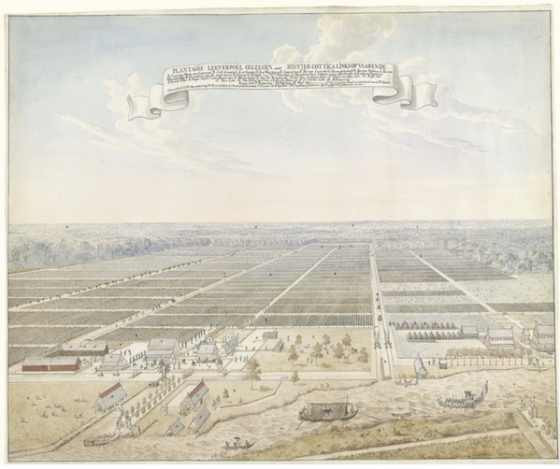ABN Amro apologises for its role in slavery via Mees and Hope banks


ABN Amro bank has issued a formal apology for its role in slavery which, the bank says, played a major role in the banking group’s history.
The International Institute for Social History has looked at the role of two 18th century banks – Hope & Co and R. Mees & Zoonen – both of which have been swallowed up in the ABN Amro group.
Both companies were involved in slave trading, in plantations and in the trade of goods made by enslaved peoples, the researchers said.
In particular, the researchers found that between 25% and 33% of Hope & Co’s turnover derived from slavery. At least 50 plantations were financed by Hope & Co loans and slaves were used as security.
‘The lists include estimates of how much each person was worth,’ IISG researcher Pepijn Brandon said. ‘Male slaves with specific skills were given a very high value in the accounts, but others were listed as not having any value.’
Mees & Zoonen played a more minor role but the researchers estimate around half of the insurance policies for seafarers which it brokered were related to slavery. ‘Decisions made in offices in Amsterdam and Rotterdam directly impacted the lives of thousands of enslaved persons,’ Brandon said.
Chief executive Robert Swaak said in a reaction to the research that ABN Amro ‘has a proud history going back more than 300 years’.
‘However, we must also recognise that it has a darker side as well,’ he said. ‘ABN Amro as it exists now cannot undo that period of its history. We are aware that, even though slavery has been abolished, the past injustices have persisted. ABN Amro apologises for the past actions and activities of these predecessors and for the pain and suffering that they caused.’
Read the report (in English)
The bank said that it has since been talking to representatives of the communities of descendants of slaves to discuss the research findings and will work to ensure concrete measures to help improve the structural social disadvantages facing the descendants of enslaved persons.
The bank is the first private company in the Netherlands to formally apologise for its role in the slave trade.
Earlier this year, research carried out on behalf of the Dutch central bank revealed that part of its start-up capital came from business owners with direct interests in plantation slavery in the Atlantic region, for example in Suriname.
The bank has not apologised for its past but plans to make an ‘appropriate gesture of lasting value to those affected and Dutch society at large.’
‘Our historical links to slavery are a constant reminder that we must never cease to contribute to a society in which every person counts and in which no one is excluded,’ director Klaas Knot said at the time.
Thank you for donating to DutchNews.nl.
We could not provide the Dutch News service, and keep it free of charge, without the generous support of our readers. Your donations allow us to report on issues you tell us matter, and provide you with a summary of the most important Dutch news each day.
Make a donation